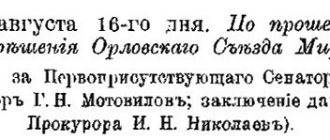According to Art.
45 of the Code of Criminal Procedure of the Russian Federation provides for representation in criminal proceedings. A similar institution is found in procedural branches of law, be it civil, arbitration or administrative matters. However, it is the representative in criminal proceedings who has a special position and is endowed with powers that differ from other options. This article requires the participation of a defense attorney on the side of the victim, private prosecutor or civil plaintiff in the legal process. Multi-channel free hotline Legal advice on criminal law. Every day from 9.00 to 21.00
Moscow and region: +7 (495) 662-44-36
St. Petersburg: +7 (812) 449-43-40
Concept and meaning
The presence of a representative of the victim in criminal proceedings is expressly provided for in Chapter 6. 45 art. Criminal Procedure Code of the Russian Federation. This chapter establishes all possible participants in such procedural actions as investigation and trial. The presence of a lawyer-representative in the case of Article 45 is considered as a right and not an obligation in cases of a defendant who is required to be provided with a lawyer for his defense.
The institution in question is expressed in specific forms, but always implies the replacement of one person by another in the process. However, if we talk about the norm under consideration, then the prosecution in the person of victims and plaintiffs does not act as the subject who, according to the law, is entitled to a defense lawyer. That is, finding a lawyer is not the responsibility of the investigation in relation to these persons.
The procedure of the article under consideration, as well as the commentary to it, can be implemented to protect the legitimate interests of the following persons:
- victim;
- the plaintiff who filed his statement in court or at the investigation stage;
- person of private prosecution.
Suspects, accused, defendants are also given the right to defense, but this is regulated by a different rule and requires a different implementation procedure. The only participant in the process who must appear in person is the witness.
Access to the interests of the victim and their protection can be granted not only to a professional, but also to any other citizen if the appropriate power of attorney has been issued to him.
Separately, it should be said about such a group of attorneys as a legal representative (the Code of Criminal Procedure of the Russian Federation speaks of which as an obligatory participant, but subject to certain conditions). The law directly provides for such situations. Legal representatives in criminal proceedings are citizens who act in the interests of a minor child, adults, insane or incompetent persons. Such participants in the investigation may submit a petition, the sample of which has been established, including the request for additional protection.
Such attorneys are fundamentally different from the option of hiring a specialist. In the first case, the presence of an attorney is mandatory, since the victim is not able to defend his interests himself. The second option, on the contrary, is considered voluntary, hence the need to conclude cooperation agreements, pay for a lawyer, and so on. In addition, when the investigation begins to suspect or accuse someone, it is obliged to provide a public legal consultant, but this will not apply to the victim either.
Protection of the rights of minor victims and witnesses during investigative actions
One of the controversial issues is ensuring guarantees for the protection of the rights of minor victims and witnesses during a number of investigative actions. The legislator only in Art. 191 of the Code of Criminal Procedure of the Russian Federation regulates the procedure for interrogating a minor victim and witness; other norms do not highlight the specifics of conducting investigative actions with the participation of these persons. Thus, the question arises of protecting the rights of minor witnesses and victims by providing additional guarantees during the preliminary investigation during investigative and other procedural actions.
As a guarantee of the protection of a minor victim or witness in accordance with Part 1 of Art. 191 of the Code of Criminal Procedure of the Russian Federation indicates the participation of a teacher and a legal representative. Attention should be paid to the different approaches of the legislator to resolving the issue of admitting these persons to participate in investigative actions involving minors, depending on their age and procedural status. In particular, the legislator granted the right to the legal representative to participate in the interrogation, while the implementation of this right does not depend on the position of the investigator, but is determined by the legal representative himself. This right of the legal representative of a minor is unshakable, with the exception of the situation specified in Part 3 of Art. 191 of the Code of Criminal Procedure of the Russian Federation, that is, a legal representative cannot be allowed to participate in an investigative action if this is contrary to the interests of a minor. In this case, another legal representative must be allowed. This raises several questions. What should act as a basis for recognizing the participation of a legal representative as contrary to the interests of the victim? Should the legal representative be completely excluded from participation in criminal proceedings, or is it possible to involve him as a witness? Should the minor's opinion be taken into account regarding the need to replace the legal representative? Who should act as legal representative in case of replacement?
Speaking about the grounds for replacing a minor, you should pay attention to the role of the legal representative in raising a teenager, creating a conflict situation in which the minor finds himself. If it is established that the legal representative is not interested in helping the minor, then the issue of replacing him must be resolved unconditionally. This situation may occur when a minor is involved in various illegal actions, or the parents are not involved in raising the child, or the interests of the child are not taken into account in resolving a specific conflict situation. The presence of this basis can be established by the testimony of witnesses: class teachers, relatives, neighbors, law enforcement officers, and the minor himself. If this information is available, I believe that the issue of replacing the legal representative for participation in investigative actions must be resolved in order to exclude the possibility of negative influence on the minor. However, the legal representative must be familiar with the materials of the criminal case in order to be able to understand the inadmissibility of the current situation in his relationship with the child for whom he is responsible. The participation of a legal representative in a court hearing must also be undisputed. The legal representative should not be completely excluded from participation in criminal proceedings, since he is not deprived of parental rights or other grounds for recognition as a legal representative. In this case, the legal representative must be limited in procedural rights, therefore he must be questioned in a criminal case regarding the circumstances related to the resolution of the criminal legal conflict, and also be present during the trial of the criminal case, but the protection of the rights of the minor must be ensured otherwise a person invited to participate in criminal proceedings as a legal representative. Clause 12 art. 5 of the Code of Criminal Procedure of the Russian Federation contains an exhaustive list of persons who can act as legal representatives of a minor; we believe that this provision does not allow us to actually ensure the protection of the rights of minors. It should be borne in mind that the interests of the child can be more adequately represented by their own grandparents, with whom the child lived for a long time, especially since their age may not be retirement age, or older siblings, with a significant difference in age. I believe that the list of persons who can act as legal representatives should be expanded, indicating the conditions for the possibility of recognizing their legal representatives as minors. Recognition of grandparents, siblings or brothers as legal representatives can only take place if the legal representative (parent) is recognized as not negatively influencing the minor or their interests.
When deciding on replacing a legal representative, the opinion of a minor should not be taken into account, since a difficult situation will arise in the relationship between the representative and the teenager.
It is interesting that the legislator resolves the issue of the participation of a teacher during the interrogation of minors. In Art. 191 of the Code of Criminal Procedure of the Russian Federation, the legislator indicated that when interrogating a minor witness or victim, a teacher participates. The question logically arises why, when establishing the procedure for interrogating a minor suspect or accused, we are talking about the participation of a teacher or psychologist, and when interrogating a witness, only about the teacher. The issue of the participation of a teacher and psychologist during the interrogation of minors has been the subject of study by many authors, so we will not enter into a discussion on this issue, we will only agree with the position of O.P. Koludarova that the concept of a teaching worker should be introduced into the Code of Criminal Procedure of the Russian Federation, which will eliminate all disputes on this issue. It should be noted that the Code of Civil Procedure of the Russian Federation provides specifically for the participation of a teacher in the interrogation of minors in court. I believe that among the general conditions for carrying out investigative actions, a provision should be introduced that provides for the participation of a teacher in carrying out these actions with minors.
A debatable issue is the advisability of the participation of a teacher in all investigative actions involving minors. Based on the provisions of the Code of Criminal Procedure of the Russian Federation, it follows that the legislator limited the participation of the teacher only during interrogations of minors. This position is objectionable, taking into account the psychological characteristics of minors, I believe that a teacher must be present during all investigative actions carried out with the participation of minors, when receiving information from them, this provision should be enshrined in the criminal procedural law, it will guarantee the protection of the rights of minors when recording the information received from them.
Kinds
The service in question involves a large number of nuances. At the stages of investigation, trial and even enforcement proceedings, rules may apply. Changes in the law rarely affect the appointment of attorneys, but it should be understood that taking into account the status of the participant in the process, the powers will be determined. Therefore, a gradation is established for the types of trust relationships.
The new version of the law states that both lawyers and other persons can act as attorneys. However, during the investigation phase of a case, only lawyers can take part in this role.
A common option for implementing such an opportunity as involving a proxy is the participation of both the victim (plaintiff) and the lawyer in the case. A lawyer is considered as a consulting party, and also acts on behalf of his client directly in court hearings.
Taking into account some features of the participation of authorized entities, such representation involves the following types:
- Legal. These are cases where the trustee is required to be present during the investigation and trial. These are situations with minors and incompetents who cannot speak for themselves. The constant participation of a lawyer in the case of a defendant is also mandatory.
- Conciliatory. In this case, an agreement on the provision of legal services is drawn up. This applies to victims, plaintiffs, defendants in civil and arbitration cases, and private prosecution. This also includes cases where the accused invites his lawyer, refusing to receive the assistance of a public defender and also entering into an agreement.
The first option should be implemented at the investigation stage, and the latter during any period of investigation and trial. A contract lawyer can be fired at any time.
Speaking about who specifically can act as a trusted subject of citizens in criminal proceedings, it should be noted that the victim has the freedom to choose his own attorney. The only limitation mentioned above is that investigative actions are always accompanied by the presence of only a lawyer. The trial allows the participation of other persons. In addition, during the investigation phase, although a lawyer is present, it is mandatory for attorneys to be present by law if required.
Legal entities occupy a special place in matters of fiduciary participation in criminal proceedings. It is known that they cannot act as subjects of a crime; the accused is always a manager or chief accountant. In the case of victims, everything is different; organizations can have a similar status.
To represent such a legal entity, it is still necessary to involve another entity:
- company lawyer;
- outside lawyer;
- the manual itself.
The company itself decides how to protect its interests, but practice shows that it is preferable to have a lawyer involved in the case.
A peculiarity of the procedural position of proxies is their inability to testify for the victim or plaintiff. Explanations about the case can only be given by an eyewitness or a person who has information that is important to the case. For testimony to be considered evidence, it must be transmitted in the prescribed manner. The same principle applies to the accused, the witness, and so on. The lawyer also does not give evidence in the case, but can explain his client’s position in all areas.
Legal representatives. Representatives in criminal proceedings.
In addition to the main participants (victim, suspect, accused), their representatives can also take part in criminal proceedings. We can say that representation in criminal proceedings is the activity of some persons in defense of the rights and legitimate interests of other persons. A special case of representation is the participation in a criminal case of a defender of a suspect or accused, but not only.
Representation may be mandatory (when the represented person, for objective reasons, cannot independently defend his rights), in other cases, having a representative is the right of a participant in criminal proceedings. According to the nature of the relationship connecting the representative and the represented person, representation can be legal (based on kinship) or based on a contract or agreement.
If the victims are minors, or due to their physical or mental condition cannot defend their rights themselves, their legal representatives or representatives are involved in mandatory participation in the criminal case (Article 45 of the Code of Criminal Procedure of the Russian Federation). The participation of legal representatives of minors (under 18 years of age) suspects and accused is also mandatory (Article 48 of the Code of Criminal Procedure of the Russian Federation). The legal representatives of a minor victim, suspect, or accused may be parents, adoptive parents, guardians, trustees, representatives of the institutions in whose care he is, guardianship and trusteeship authorities.
Representatives of the victim and private prosecutor are usually lawyers. But at the request of the victim, his close relative or other person may also be admitted as a representative. A civil plaintiff in a criminal case also has the right to have a representative: an individual or legal entity who has suffered property damage by a crime (not necessarily the victim) and who has submitted a claim for compensation for this damage.
The legal representative of a victim under the age of 16, against whom a crime against sexual integrity has been committed, has the right to petition for the appointment of a lawyer as a representative of this victim. In this case, the costs of paying a lawyer are reimbursed by the state.
Legal representatives and representatives are allowed to participate in a criminal case on the basis of a decision of the investigator (inquiry officer). For a representative - lawyer, it is necessary to have a lawyer's certificate and a warrant. A representative of a legal entity (victim or civil plaintiff) must submit a power of attorney.
To draw up a petition for admission of a representative in a criminal case, you can use the petition constructor.
If an investigator, an inquiry officer, or a judge comes to the conclusion that the actions of a legal representative harm the interests of a minor victim, suspect, or accused, they have the right to remove him from participation in the criminal case and admit another legal representative.
In criminal proceedings, legal representatives and agents have the same rights as the participants in the proceedings they represent.
A victim, a private prosecutor, or a civil plaintiff may have a representative and, at the same time, personally participate in a criminal case: the participation of a representative does not limit their rights in any way.
Conditions
The legislator does not provide any requirements for attorneys.
The basis for contacting a lawyer or inviting another person as support in the court process is the very fact of the existence of proceedings. There is no need to present a representative or provide reasons for your decision. The victim himself decides whether to fire the lawyer or not. The investigation and the court cannot influence this. The only requirement is the provision of a document reflecting the powers of the authorized entity. For a lawyer this is an agreement, for other persons it is a power of attorney.
It is necessary to consider these documents in more detail, since in their absence, representation will be impossible:
- Power of attorney. It is a paper that contains information about the principal and the attorney, reflects the granting of the right to represent the interests of the victim, and lists all the capabilities of the trusted entity, which is mandatory for the document in question. Also, the power of attorney must have a validity period, which is often limited to the period of investigation and trial.
- Agreement. It is between the client and the lawyer. Such an agreement should also determine the scope of the lawyer’s capabilities and the duration of his work. Terms of cooperation and payment, since a lawyer always provides a service for money.
Of course, the lawyer always has the advantage. He is a specialist, fully versed in the legal field and can resolve emerging issues. Other persons acting as trusted entities can only give explanations, voice the position of the principal and defend his interests.
If a citizen decides to hire a specialist to help with the matter, then you should also take care of other documents in addition to the agreement. We are talking about certificates and warrants. At the investigation stage, they are provided to the investigator. The order is filled out independently by the lawyer, and it must be the original document, and not a copy. The certificate is needed, rather, when implementing activities necessary to obtain information on the case.
In the case of the category of subjects who, in any case, are obliged to act as attorneys for minors and incapacitated citizens, it is necessary to confirm the possibility of their participation in the case.
The investigation and the court should subsequently submit documents confirming the fact that a person has a disease that makes him unable to independently defend his rights, or those that establish the return of a child under eighteen years of age.
It is mandatory to have a written request in the form of a petition to engage an attorney on the part of the victim or plaintiff.
Filing an application is considered a procedural aspect. This once again confirms the ability of individuals to use third parties as attorneys, but at the same time with control over this by the investigative authorities and the court. In most cases, practice shows that such requests are granted. This application rule applies only to relatives who wish to become an attorney. Other persons simply submit a written request.
The Constitutional Court clarified when a judicial representative does not need legal qualifications
The Constitutional Court issued a ruling on the complaint of the company and its executive director against the ban on participating in the case as a judicial representative. The reason was his lack of legal education. The court decided that only one of the judicial representatives must be a qualified lawyer.
- The Economy Board told when legal expenses cannot be recovered
July 17, 8:28 - Life hacks for a lawyer: how to change an adhesion agreement
July 16, 9:04 - The Supreme Court reminded how to understand whether there is an employment relationship between the parties
July 14, 9:43
After considering the tax dispute in the arbitration court of first instance and appealing, Alexandra LLC filed a cassation appeal. The cassation instance - the Arbitration Court of the Far Eastern District - refused to allow Konstantin Budarin to participate in the court hearing as a representative of Alexandra LLC. At the same time, the court referred to the fact that Budarin is not a person who performs the functions of a sole executive body and has the powers of representation due to this, and cannot act as a legal representative of the plaintiff due to the lack of legal education. At the same time, Alexandra LLC indicated that Budarin is the co-founder and executive director of the company, therefore he deeply knows the specifics of its activities. In addition, two qualified lawyers participated in the process on Alexandra’s side. The company also indicated that the courts of first and appellate instances did not object to Budarin’s participation in the proceedings.
Alexandra LLC and Konstantin Budarin believe that Part 4 of Art. 59, part 4 art. 61 and part 4 of Art. 63 of the Arbitration Procedural Code contradict the Constitution, since they do not allow the founder and head of an LLC to represent his interests in an arbitration court in the absence of legal formation.
The Constitutional Court noted that Budarin is not a participant in the case against which he filed a complaint, but is considered a proper applicant, since Alexandra LLC is involved in the case, and this also affects the interests of his co-founder.
The court noted that the Constitution guarantees everyone the right to defend their rights and freedoms by all means not prohibited by law, including in court. The Institute of Judicial Representation is also intended to guarantee the right to judicial protection and provide interested parties with qualified legal assistance.
At the same time, the right to judicial protection does not imply an arbitrary choice of its methods and procedures, and the right to independently choose a representative for judicial proceedings does not allow any person to become such. The legislator has the right to establish criteria for the selection of judicial representatives, although he must not violate the right to judicial protection.
Previously, the Constitutional Court has repeatedly indicated that the requirements for a judicial representative to have a higher legal education or an academic degree in jurisprudence do not violate the constitutional rights of participants in the process, since they have the opportunity to represent their interests independently. This is true in the general case, but does not fully reflect the specifics of business activity and related court cases.
Since organizations, unlike citizens, by their nature cannot defend their interests in court without the participation of representatives, all Russian legal codes allow the heads of organizations to perform this role even in the absence of legal education.
Provisions of Art. 59, 61 and 63 of the APC, which the applicants dispute, are established in the current version of the Federal Law of November 28, 2021 No. 451-FZ. By introducing these norms, the state sought to strengthen the legal protection of subjects of law and guarantee that a participant in the case would have a qualified representative in the arbitration court.
- Constitutional Court: the law allows compensation for damages for illegal prosecution
July 16, 17:18 - The Constitutional Court declared the provision of the article of the Labor Code unconstitutional
July 15, 15:04 - The Constitutional Court clarified in what cases jurors can be questioned
July 8, 13:44
At the same time, these norms do not limit the right of participants in the case to have several representatives, the Constitutional Court emphasized. A situation in which one of the representatives of a party has legal qualifications, and the other or others have practical knowledge of the activities of the organization and can provide the court with valuable information about it, meets the requirements of procedural efficiency. The requirement for at least one judicial representative to have a higher legal education or an academic degree in jurisprudence does not apply to other representatives.
The variety of arbitration disputes means that even the most experienced lawyer cannot be completely competent in all of them, the Constitutional Court emphasized. In many cases, the necessary qualifications are provided not by legal education, but by another education, as well as specific acquaintance with the relevant field of activity. In such cases, representatives of the organization that is involved in the legal dispute are no less useful than professional lawyers. In addition, it is impossible or difficult to involve members of an organization in a dispute with its participation as witnesses or specialists due to their interest in the case.
In this case, Alexandra LLC reasonably considered that the tax dispute concerned not only purely legal issues, and tried to involve Konstantin Budarin, who has valuable knowledge in accounting, in the legal proceedings. His participation in the case could in no way reduce the equality and competitiveness of the parties, since the interests of the company were also protected by professional lawyers, the Constitutional Court noted. Therefore, the refusal of the Far Eastern District AS to allow Budarin to participate as a representative of “Alexandra” is unfounded.
The Constitutional Court came to the conclusion that, in its legal meaning, Part 4 of Art. 59, part 4 art. 61 and part 4 of Art. 63 of the APC do not imply a ban on conducting a case in an arbitration court for a person associated with an organization participating in the process, if he does not have a legal education, if at the same time the interests of the organization are represented by lawyers or other qualified persons. These norms do not contradict the Constitution.
Their application in relation to Alexandra LLC and Konstantin Budarin is unlawful and is subject to review.
- Pravo.ru
- constitutional Court
Features of representation in enforcement proceedings
Evelina Georgievna Dubovik, senior lecturer at the Department of Financial Law and Legal Regulation of Economic Activities of the Belarusian State University, managing partner of Legal
Roman Vladimirovich Fanibaro, head of the sector of the compulsory enforcement department of the Oktyabrsky district of Minsk
Natalya Petrovna Budnik, legal consultant of UE "Legal
Citizens, including individual entrepreneurs, participate in enforcement proceedings personally or through their representatives. Moreover, personal participation does not deprive the right to have representatives <*>.
Persons entitled to be representatives
Representatives of citizens, including individual entrepreneurs, in enforcement proceedings may be:
- lawyers;
- legal representatives;
- close relatives (parents, adoptive parents, children, including adopted children, siblings, grandparents, grandchildren);
— spouse;
- other persons in cases provided for by legislative acts <*>. These are, in particular, legal entities and individual entrepreneurs who have a special permit (license) issued by the Ministry of Justice for the right to carry out activities in the provision of legal services, indicating its component - legal services <*>.
If a writ of execution imposes on a debtor-citizen, including an individual entrepreneur, duties that he must perform only personally, such a debtor does not have the right to act through a representative.
Legal entities and organizations that are not legal entities participate in enforcement proceedings through their bodies or their representatives within the limits of the rights granted by acts of legislation or constituent documents. The interests of such persons and organizations can be represented by their managers or employees, lawyers, and other persons in cases provided for by legislative acts.
Persons who cannot be representatives of the parties
The following cannot be representatives of the parties in enforcement proceedings:
- minors who do not have full legal capacity;
- citizens recognized in accordance with the established procedure as incompetent or partially capable;
- judges, investigators, prosecutors, employees of enforcement agencies and courts, with the exception of cases when these persons participate in enforcement proceedings as representatives of the relevant bodies or legal representatives of the parties to enforcement proceedings <*>.
This list is closed.
The rights and legitimate interests of minors who do not have full legal capacity, and citizens recognized in accordance with the established procedure as incompetent or partially capable, are represented in enforcement proceedings by their legal representatives <*>.
Legal representatives
Legal representatives perform actions, the right to perform which belongs to the represented, with restrictions established by legislative acts. The legal representative may entrust participation in enforcement proceedings to another person chosen as a representative.
If, during enforcement proceedings, a minor who does not have full legal capacity acquires it, the powers of the legal representative will cease. And the debtor, who has become an adult, acts independently in full.
Documents confirming the powers of the parties
Representatives of the parties are allowed to participate in enforcement proceedings only if they have documents confirming their authority <*>. These are documents proving the identity and the right to represent the interests of the party (notarized power of attorney, passport, documents confirming relationship, etc.).
The head of a legal entity confirms his authority with a document that certifies his official position and gives the right to represent the interests of the legal entity without a power of attorney (appointment order, charter).
The lawyer presents a lawyer's certificate and a power of attorney, executed in simple written form, or a warrant.
Persons authorized to certify powers of attorney of representatives
Close relatives and other persons, in cases provided for by legislative acts, confirm their powers with a power of attorney issued by a citizen, including an individual entrepreneur, certified by a notary or by a person authorized to certify powers of attorney:
- military personnel and other citizens undergoing treatment in hospitals, sanatoriums and other military medical institutions, certified by the heads of such institutions, their deputies for medical affairs, senior or duty doctors;
- military personnel, and at the locations of military units, formations, institutions and educational institutions that train personnel in specialties (areas of specialties, specializations) for the Armed Forces, other troops and military formations of the Republic of Belarus, in which there are no notary offices, notary offices and others bodies performing notarial acts, as well as powers of attorney of civilians working in these units, formations, institutions, members of their families and family members of military personnel, certified by the commanders (chiefs) of these units, formations or institutions;
- citizens in institutions executing punishment in the form of arrest, restriction of freedom, imprisonment, life imprisonment, or places of detention, certified by the heads of the relevant institutions executing punishment, or heads of administrations of places of detention;
- citizens undergoing treatment in hospitals, hospitals, other healthcare organizations providing medical care in inpatient settings, or living in social service institutions providing inpatient social services, certified by the chief doctors, their deputies for medical care or the doctors on duty of these hospitals, hospitals and other health care organizations providing medical care in inpatient settings, as well as heads of hospitals, heads (their deputies) of social service institutions providing inpatient social services, heads (their deputies) of the relevant labor, employment and social protection bodies <*>.
A representative of a legal entity acts on behalf of this person on the basis of a power of attorney issued in simple written form, signed by the head or other person authorized by the constituent documents.
In addition to the above documents, the representative of the party in enforcement proceedings is required to present an identification document (passport, residence permit). Documents confirming powers, or copies thereof, are attached to the materials of enforcement proceedings.
Procedure for issuing a power of attorney to represent interests
A power of attorney to represent interests in enforcement proceedings must contain:
— date of issue (a power of attorney without a date is void);
- place of issue;
— data of the principal;
— data of the representative (full name, passport details, place of registration, job title (if this is a representative of the organization));
— list of powers (the powers specified in Part 2 of Article 24 of the Law on Enforcement Proceedings must be specifically specified);
— validity period (if not specified, the power of attorney is valid for one year from the date of issue);
— signature of the principal (with the adoption of Decree No. 7, business entities have the right not to use a seal).
The power of attorney comes into force from the date of execution or certification, unless it provides for a later date <*>. The validity period of the power of attorney cannot exceed three years. If the validity period is not specified in the power of attorney, it remains valid for one year from the date of its execution. A power of attorney that does not indicate the date of its execution is void <*>.
Case studies
1. The enforcement department received an application to initiate enforcement proceedings, signed by a representative by proxy. The applicant was returned the application without initiating enforcement proceedings, since the power of attorney did not contain the authority to present an executive document.
2. The representative, by proxy, filed an application for refusal of further collection within the framework of enforcement proceedings. The bailiff did not accept the refusal, because this right was not in the power of attorney.
3. The representative of the claimant applied to the enforcement department with a request to take measures to ensure enforcement by seizing the debtor’s property. The application was not considered on its merits, since a copy of the expired power of attorney was attached to it.
A power of attorney issued to represent interests in enforcement proceedings and containing the powers listed in Art. 24 of the Law on Enforcement Proceedings, allows the representative to get acquainted with the materials of the enforcement proceedings, declare a refusal to execute, enter into settlement agreements within the framework of enforcement proceedings, participate in enforcement actions, and exercise other powers named therein.








